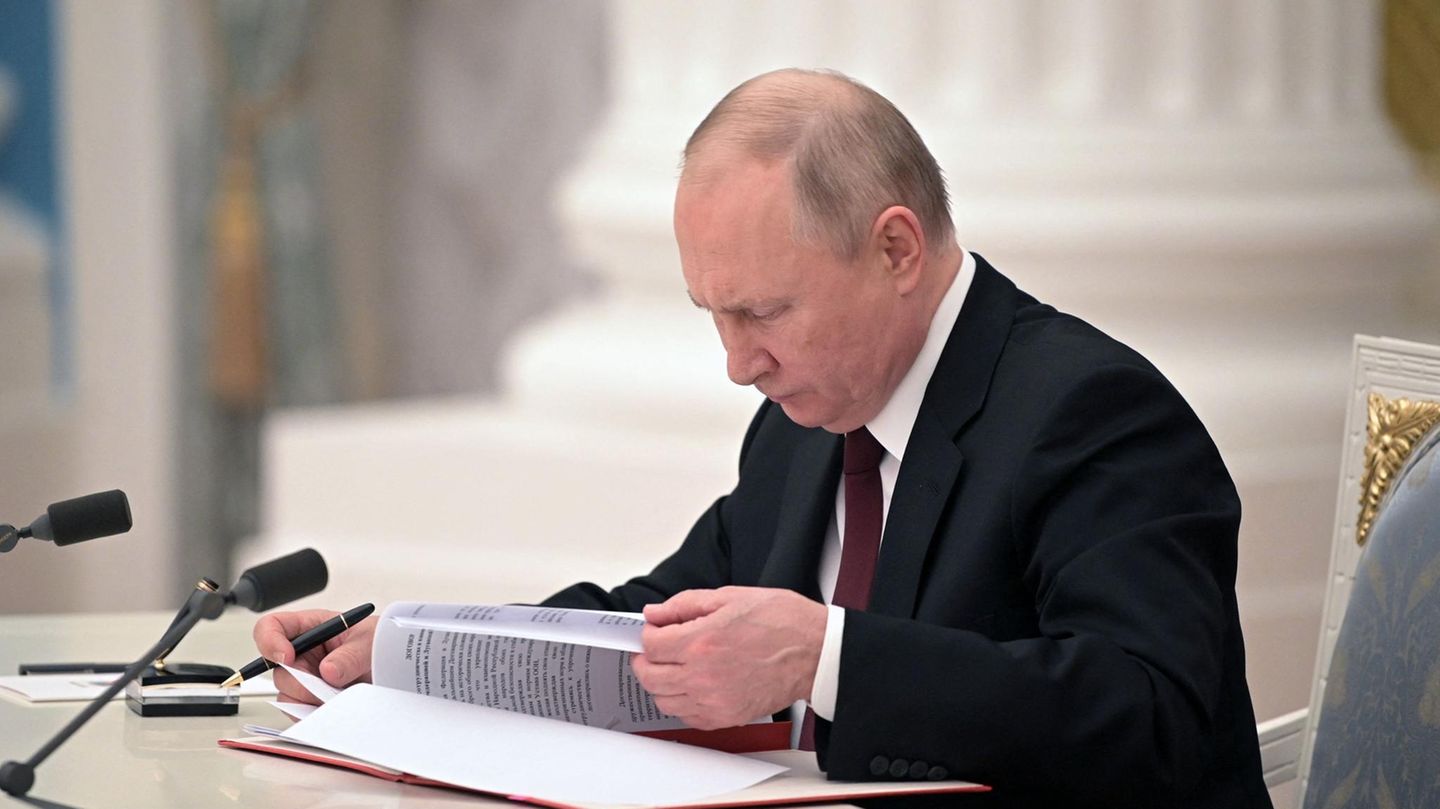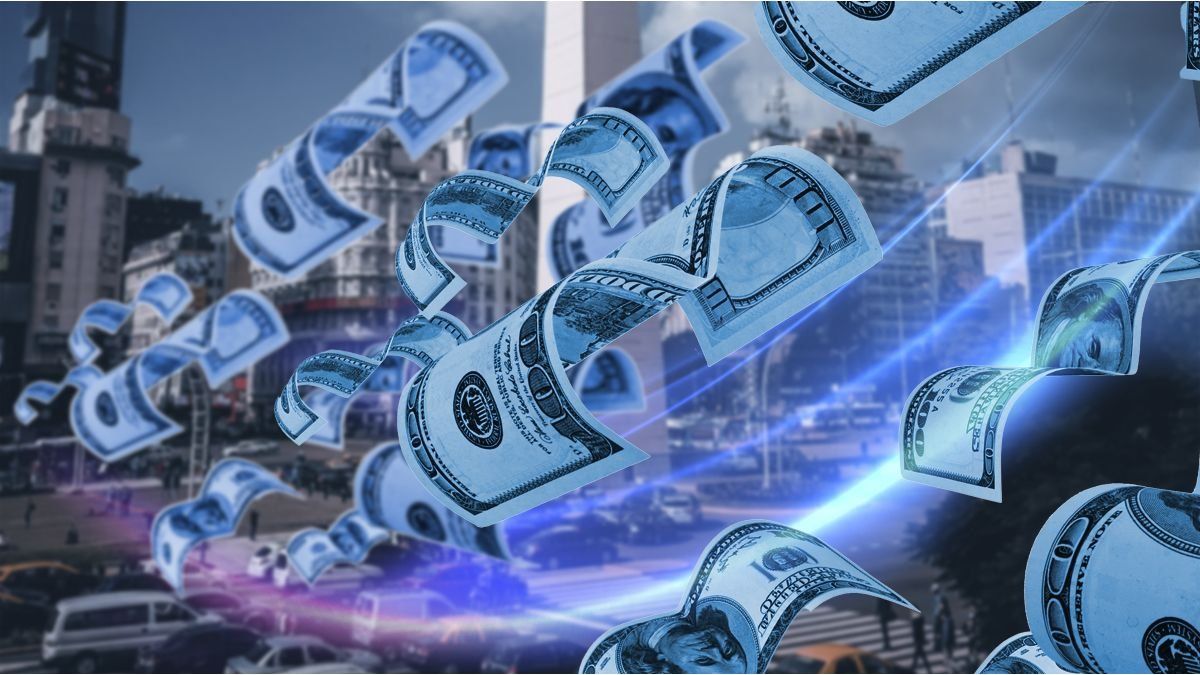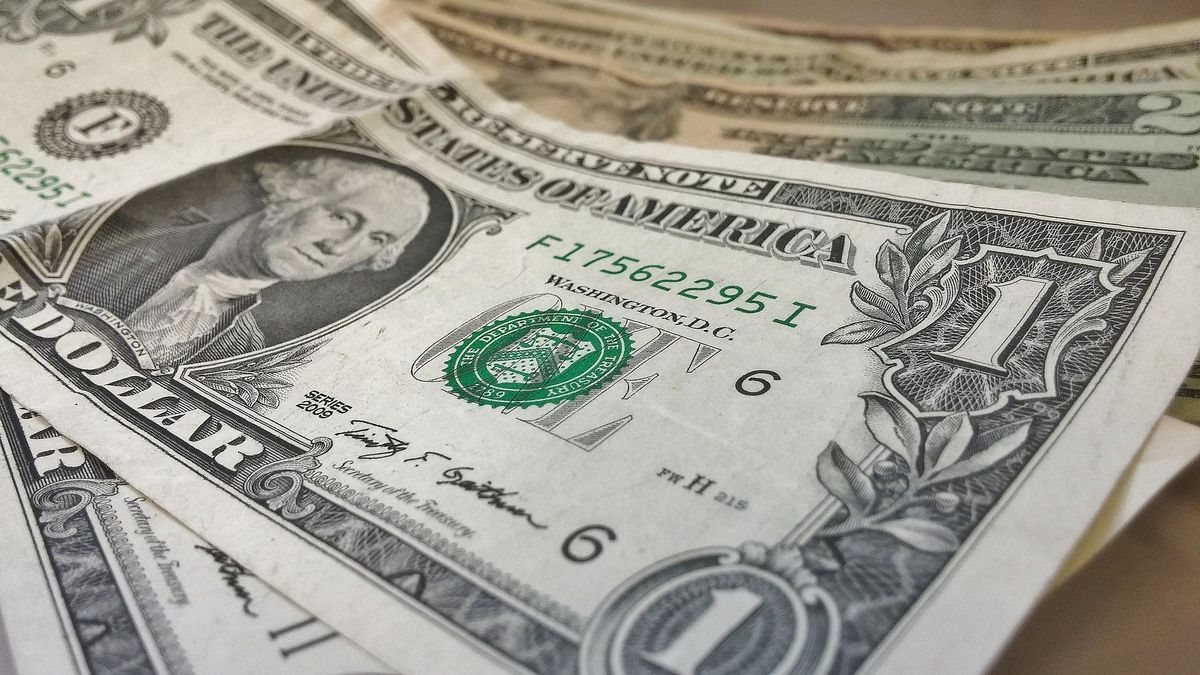Russia’s President Vladimir Putin is shocking the world: he not only recognizes parts of eastern Ukraine as independent states, but also puts forward absurd historical theses. The most important passages at a glance.
Even before Vladimir Putin’s speech, flags were being waved on Russian state television and the national anthem was being sung. But at first it was all about the celebrations for the return of the Russian Olympic participants. What followed then took the world’s breath away.
In his office in the Kremlin, dressed in a fine suit, Kremlin boss Vladimir Putin launches a frontal attack on Ukraine during a television speech. The country only exists thanks to Russia, thanks to the communist revolutionary leader Vladimir Ilyich Lenin, who drew the borders more than 100 years ago; Lenin is the “author, architect” of Ukraine, Putin said on Monday. And yet the country is turning away from this history and has allowed itself to be made into the “puppet regime” of the USA, where radical nationalists and neo-fascists pursued anti-Russian policies.
“Today’s Ukraine was created entirely by Russia,” says Putin. During the almost hour-long speech, with a raised index finger and metal in his voice, he at times sounded as if he were denying the country’s right to exist, as if he wanted to take over the whole of Ukraine. “You want decommunization,” says Putin, addressing Ukraine directly. “We are not against it. We are ready to show what real decommunization is.”
Putin’s speech sounds like a threat. And it should be
It sounds like a threat. And it should. In the end, Putin recognizes the “Luhansk and Donetsk People’s Republics” as independent states – and sends Russian soldiers there “to keep the peace” to the dismay of Ukraine and the West. And he is once again shifting the borders in Europe – eight years after the annexation of the Black Sea peninsula of Crimea.
Putin sounds like he’s far from done with the neighboring country. He has repeatedly referred to Russians and Ukrainians as one nation, much to Kiev’s annoyance. In his televised speech, he again claimed that Ukraine “never had its own statehood.”
It is the hobby historian’s favorite subject. In July, Putin had already written an essay on the “Historical Unity of Russians and Ukrainians,” which was viewed with dismay in the West. In the article written at the time, Putin complained that Ukraine was making “Russophobia” state policy and being controlled by the West. Accordingly, the “creation of an ethnically clean Ukrainian state that is aggressively positioned against Russia is comparable in terms of its consequences to the use of a weapon of mass destruction against us”. Against this background, he justified that the people in Donetsk and Luhansk had taken up arms “to protect their houses, their language, their lives”.
“Russia has done everything to stop the fratricide,” Putin wrote in the summer. And in his TV speech, he immediately follows up by speaking of a “genocide” in eastern Ukraine and offering to protect this alleged unit. In particular, he railed against a corrupt elite and super-rich oligarchs in Ukraine who took advantage of aid money but left the people in poverty. He criticizes the country for presenting itself as a “victim of external aggression” in order to attract Western attention and money. “The United States and NATO have shamelessly begun to open up Ukraine’s territory as a theater of possible combat operations,” Putin claims. He describes Ukraine’s NATO membership as “a foregone conclusion” and goes so far as to claim that Ukraine could soon become a nuclear power with Western help.
Putin ends with a direct warning: If the “ruling regime” in Ukraine does not stop the alleged hostilities immediately, it will be responsible for “a possible continuation of the bloodshed.”
Sources: DPA,
Source: Stern
David William is a talented author who has made a name for himself in the world of writing. He is a professional author who writes on a wide range of topics, from general interest to opinion news. David is currently working as a writer at 24 hours worlds where he brings his unique perspective and in-depth research to his articles, making them both informative and engaging.




